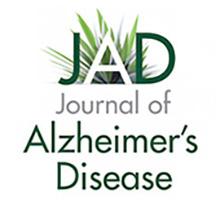12 December 2024

Landmark collection of papers provides an in-depth overview and assessment of what clinical trials have achieved (or not) to date and their related scientific underpinnings
Alzheimer’s disease (AD), the most common form of dementia among older adults, remains a major scientific and clinical challenge, particularly regarding its early diagnosis and treatment. Decades of significant efforts have been made to find the cause(s), pathogenic mechanisms, biomarkers for early detection, and treatment of AD. A new collection of papers released simultaneously in the Journal of Alzheimer’s Disease and its companion book series Advances in Alzheimer’s Disease provides an in-depth overview and assessment of the state of the art of treatments and their varying degrees of success and the research behind them.
Guest Editor Paula I. Moreira, PhD, University of Coimbra, Coimbra, Portugal, and co-Editor-in-Chief of the Journal of Alzheimer’s Disease, says, "Based on the growing knowledge about the multiple mechanisms involved in AD pathophysiology, many therapeutic interventions have been developed to target pathological events that are believed to play a crucial role in the course of the disease. Theoretically, those therapeutic interventions have the potential to stop or at least slow down structural and functional brain alterations providing sustainable improvements in cognitive function."
Over the past three decades, researchers have focused primarily on approaches aimed at decreasing amyloid-β, considered by many as the cause of AD. However, those therapies failed due to lack of clinically meaningful efficacy and/or occurrence of serious side effects, leading many researchers to explore the efficacy of strategies aimed at tackling other players in AD pathophysiology or its risk factors.
Guest Editor George Perry, PhD, Semmes Foundation Distinguished University Chair in Neurobiology, The University of Texas at San Antonio, and Editor-in-Chief of the Journal of Alzheimer’s Disease, comments, "This publication offers a comprehensive overview of both traditional and experimental treatments for AD, covering both pharmacological and non-pharmacological approaches including lifestyle strategies, and discusses the state of the art of these treatments."
This collection of papers is divided into the following topics:
- Pharmacological strategies aimed at amyloid- β and tau, the two proteins associated with AD
- Therapeutic strategies including metal-targeting agents and antioxidants
- Repurposed drugs, particularly antidiabetics and lipid-lowering therapies
- Stem cells and gene therapies
- Non-pharmacological approaches, including specific diets, physical exercise, and acupuncture
- Brain stimulation and imaging techniques
Dr. Moreira concludes, "Decades of research into AD have significantly advanced our understanding of the disease. We are very grateful to the contributors of this publication for bringing their expertise and perspectives to these topics, paving the way towardsfuture breakthroughs and improved treatments."
Additional Information
Therapeutic Trials in Alzheimer’s Disease: Where Are We Now?
Guest-Editors
- Paula I. Moreira, PhD, University of Coimbra, Coimbra,
- Portugal Jesus Avila, PhD, Centro de Biologia Molecular (CSIC-UAM), Madrid, Spain
- Daniela Galimberti, PhD, University of Milan, Milan, Italy
- Miguel A. Pappolla, MD, PhD, University of Texas Medical Branch, Galveston, TX, USA
- Germán Plascencia-Villa, PhD, The University of Texas at San Antonio, San Antonio, TX, USA
- Aaron A. Sorensen, BS, MA, Medical Decision Logic, Baltimore, MD, USA
- Xiongwei Zhu, PhD, Case Western Reserve University, Cleveland, OH, USA
- George Perry, PhD, The University of Texas at San Antonio, San Antonio, TX, USA
The supplemental issue is available as Journal of Alzheimer’s Disease, Volume 101, Issue S1.
It is also available in a print book edition Advances in Alzheimer’s Disease, Volume 12 which is available at an 20% discount, after filling out this form.







